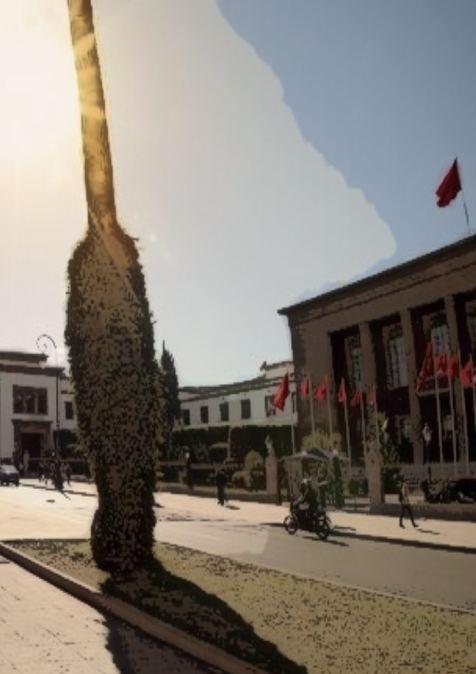RELATED CONTENT
-
AuthorsNovember 1, 2024Using panel data from a large group of developing economies and a Generalized Method of Moments (GMM) estimator, we examine the effects of trade and other factors on female labor-force participation and wage employment. We focus particularly on comparing the effects of trade openness in the Middle East and North Africa (MENA) region with Latin America and the Caribbean (LAC) and sub-Saharan Africa (SSA). The empirical results indicate that trade openness affects female labor-force p ...
-
October 31, 2024In this episode, we explore Africa's bioeconomy agendas with Dr. Ousmane Badiane, Executive Chairperson of AKADEMIYA2063. We discuss how African nations are aligning with the Paris Agreement to address climate change impacts on food systems, the commitments made at COP28 related to clim...
-
 AuthorsFernanda MagnottaOctober 30, 2024Beyond partisan rhetoric, November's election in the United States can determine America's approach to a rapidly shifting world order. Donald Trump's first term, from 2016 to 2020, marked a historic departure from the post-Second World War bipartisan consensus. His ‘America First’ approach introduced a transactional view of international relations that continues to shape the current political landscape. This approach was seen in actions such as Trump’s withdrawal from the Paris Clim ...
AuthorsFernanda MagnottaOctober 30, 2024Beyond partisan rhetoric, November's election in the United States can determine America's approach to a rapidly shifting world order. Donald Trump's first term, from 2016 to 2020, marked a historic departure from the post-Second World War bipartisan consensus. His ‘America First’ approach introduced a transactional view of international relations that continues to shape the current political landscape. This approach was seen in actions such as Trump’s withdrawal from the Paris Clim ... -
October 30, 2024The global impact of the US elections on Africa is significant, with each administration shaping US-Africa relations through trade policies, development aid, and security cooperation. Potential shifts in economic and political alliances underscore Africa's strategic role amid US-China t...
-
AuthorsOctober 30, 2024This paper examines the complex interplay between global climate ambitions and national interests within the New South—defined as a diverse group of emerging economies, each pursuing distinct geopolitical strategies, economic priorities, and development goals—seen through a realist lens at the COP29 climate summit. As the climate crisis deepens, the geopolitical stakes involved in climate governance become more pronounced. The New South, grappling with the dual challenges of economi ...
-
October 29, 2024يخصص مركز السياسات من أجل الجنوب الجديد حلقة برنامجه الأسبوعي "حديث الثلاثاء لمناقشة موضوع " إفريقيا والعضوية الدائمة في مجلس الأمن: طموح وتحديات ". تأسس مجلس الأمن على أرضية توازنات أفرزتها الحرب العالمية الثانية، حينها كانت الأمم المتحدة تضم 50 عضوا فقط. الآن، وبعد مرور أكثر من 75 عا...
-
 AuthorsOctober 25, 2024Ding, dang, dong… Vous avez certainement entendu sonner le carillon. C’est la rentrée. Ou les rentrées. Elles s’étalent sur quasiment deux mois tant la reprise est plurielle et concerne des acteurs ou des agents multiples. La rentrée des élèves, tout d’abord. À la mi-septembre déjà, ils ont enlevé le sable de leurs chaussettes, rangé leurs nouvelles fournitures scolaires. Mais pas seulement, celle des parents aussi : septembre est le mois de toutes les dépenses : les frais scolaire ...
AuthorsOctober 25, 2024Ding, dang, dong… Vous avez certainement entendu sonner le carillon. C’est la rentrée. Ou les rentrées. Elles s’étalent sur quasiment deux mois tant la reprise est plurielle et concerne des acteurs ou des agents multiples. La rentrée des élèves, tout d’abord. À la mi-septembre déjà, ils ont enlevé le sable de leurs chaussettes, rangé leurs nouvelles fournitures scolaires. Mais pas seulement, celle des parents aussi : septembre est le mois de toutes les dépenses : les frais scolaire ... -
October 24, 2024Depuis 2016, le Policy Center for the New South et le Centre de Géopolitique de l’école HEC Paris organisent chaque année deux éditions des « Dialogues Stratégiques ». Cette plateforme d’analyse et d’échange réunit des experts, des chercheurs provenant de différents think-tanks et du mo...
-
 AuthorsEugène BergPascal ChaigneauThierry GarcinJeremy GhezJacques GravereauAlain Oudot de DainvilleFlorent ParmentierAnne-Sophie RaujolEmmanuel VéronOctober 24, 2024Prochainement disponible sur Livremoi et Amazon. Les Dialogues Stratégiques, fruit d'une collaboration entre le HEC Center for Geopolitics et le Policy Center for the New South, constituent une plateforme d'échanges biannuelle dédiée à l'analyse des grandes tendances mondiales et des problématiques régionales qui lient l'Europe et l'Afrique. Réunissant praticiens, décideurs, universitaires et représentants des médias, cet espace de réflexion permet de décoder les transformations ...
AuthorsEugène BergPascal ChaigneauThierry GarcinJeremy GhezJacques GravereauAlain Oudot de DainvilleFlorent ParmentierAnne-Sophie RaujolEmmanuel VéronOctober 24, 2024Prochainement disponible sur Livremoi et Amazon. Les Dialogues Stratégiques, fruit d'une collaboration entre le HEC Center for Geopolitics et le Policy Center for the New South, constituent une plateforme d'échanges biannuelle dédiée à l'analyse des grandes tendances mondiales et des problématiques régionales qui lient l'Europe et l'Afrique. Réunissant praticiens, décideurs, universitaires et représentants des médias, cet espace de réflexion permet de décoder les transformations ... -
 AuthorsOctober 23, 2024This paper was originally published on cambridge.org This paper explores the (de-)routinisation of employment structure in developing countries, through the case of Morocco. We investigate employment (de-)routinisation from an often-overlooked perspective, aiming to elucidate the interplay between the dynamics of occupational employment composition by the level of routine tasks intensity and two structural aspects: premature deindustrialisation and the prevalence of informal lab ...
AuthorsOctober 23, 2024This paper was originally published on cambridge.org This paper explores the (de-)routinisation of employment structure in developing countries, through the case of Morocco. We investigate employment (de-)routinisation from an often-overlooked perspective, aiming to elucidate the interplay between the dynamics of occupational employment composition by the level of routine tasks intensity and two structural aspects: premature deindustrialisation and the prevalence of informal lab ...




